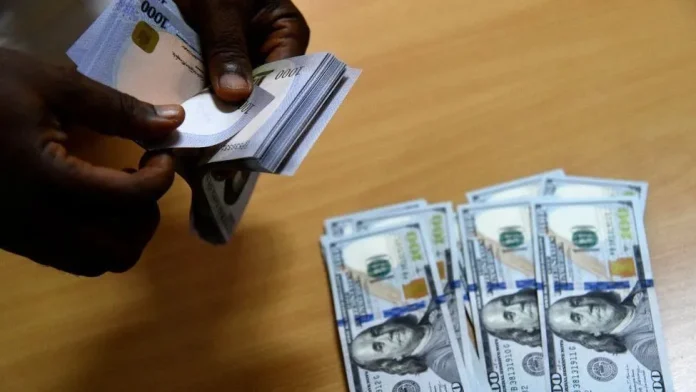The Nigerian year-end import demand grew on Wednesday, making it difficult for the naira to maintain its value throughout the foreign exchange market. Although the market anticipates respectable FX inflows, foreign investors have refrained from entering the financial markets due to the persistently low interest rates on investment alternatives.
Remittances from outside and export earnings from the non-oil and oil industries have remained scarce despite the steady increase in FX demand. This has prevented the naira from collapsing against the US dollar, which is the leading foreign currency.
Following the central bank’s announcement that the $7 billion FX backlog will be paid, exchange rates saw a significant uptick in both the official and illegal markets. Although market involvement has decreased dramatically, some pressure-induced capital has been eliminated by the monetary authorities.
According to data from FMDQ, the local currency in the Nigeria Autonomous Foreign Exchange Market (NAFEM) closed at a rate of N840.53, down 1.15% versus the US dollar.
The Naira closed at N1,150 per dollar after declining by 0.88% on the parallel market. As a result, the difference between the legal and illicit markets shrank. Rates have been fluctuating like a pendulum because of the severe lack of foreign exchange in the nation. Exchange rates have remained erratic despite the monetary authority’s ongoing efforts to achieve FX rate convergence.
Negative trends in the world oil market may have an effect on government income and restrain the buildup of foreign reserves in the second half of the year. Despite rising oil output, Nigeria’s overall foreign reserve remains below $33.4 billion, according to an OPEC report.
Oil market has remained tight amidst conflict in the Middle East and not so good demand outlook following rising US inventories and an expected slowdown in China’s demand. Naira Devaluation Deepens Economic Crisis in Nigeria
ICE Brent crude declined by 4.26% to $79 per barrel, while the West Texas Intermediate (WTI) crude oil also declined by 4.00% to $74.7 per barrel. In the forex market, the strong US dollar is again keeping GBP/USD pinned down.













